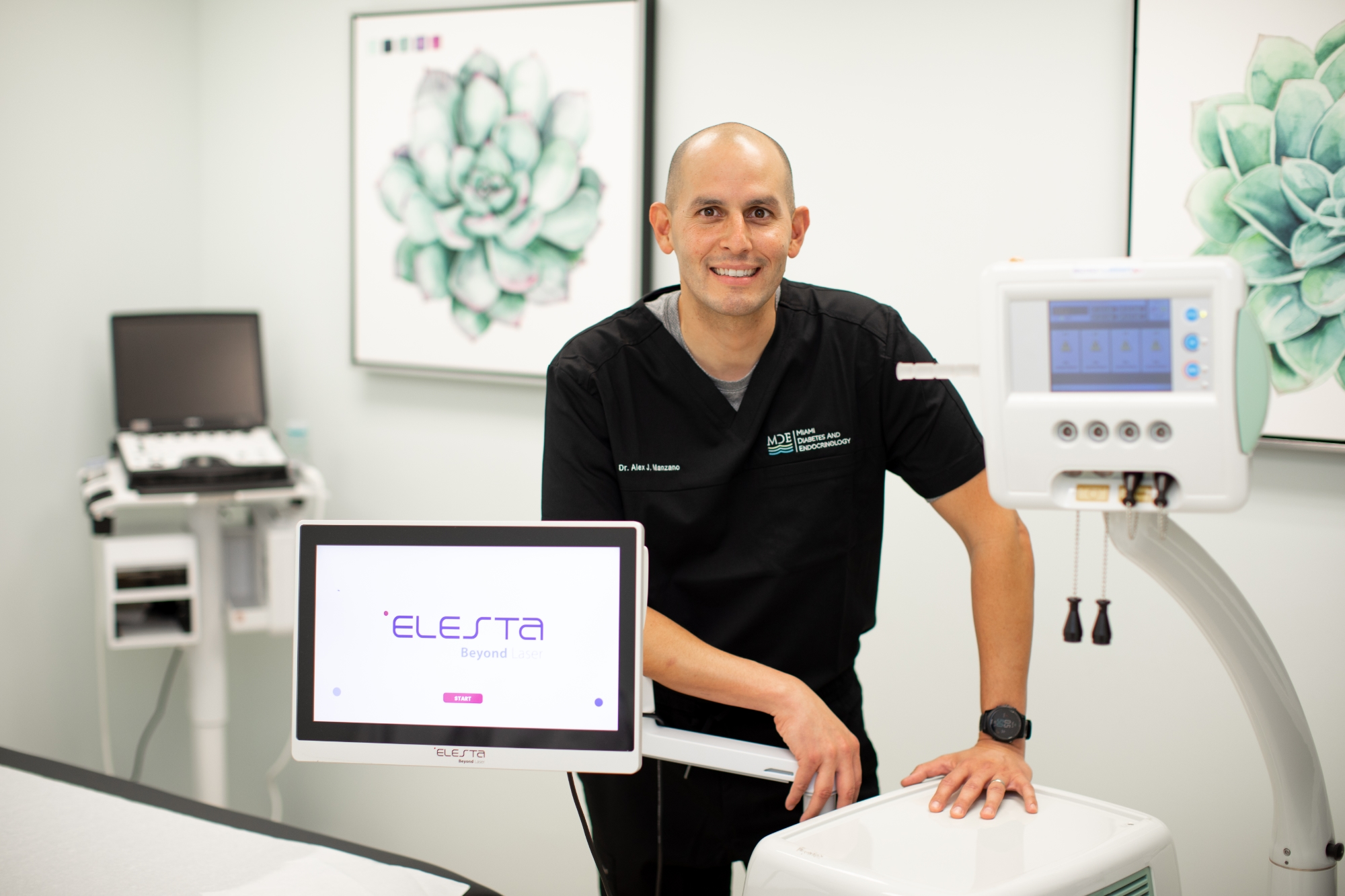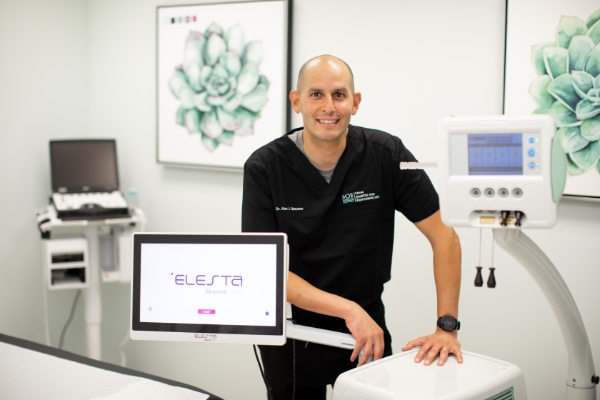Learn About
Minimally Invasive Thyroid Procedures
Our team of physicians are board certified physicians by the American Board of Internal Medicine and have been practicing Endocrinology with an emphasis in diabetes, non-surgical weight loss and Thyroid disease. Below are the services that we provide. Please call our office 786-433-2450 if you have any questions or would like to schedule an appointment.


Learn About
Minimally Invasive Thyroid Procedures
Interventional endocrinology is an emerging field that uses percutaneous (pinhole through the skin) image-guided procedures to treat endocrine diseases. These are minimally invasive techniques that will prevent a more invasive procedure like surgery, and thus preventing hospital stays and major complications.
- Percutaneous ethanol injections (PEI) for recurrent simple thyroid cysts
- Ultrasound guided Laser ablation (LA)
- Ultrasound guided Radiofrequency ablation (RFA)
At Miami Diabetes and Endocrinology, we are proud to offer the most advanced therapies for the treatment of thyroid nodular disease. We are the only practice in South Florida that combines extensive procedural image-guided expertise and vast research and clinical expertise when it comes to managing thyroid nodular disease. Cases are methodically reviewed to tailor the most appropriate treatment plan for the patient. You will feel comfortable before, during and after the procedure as you will be carefully guided through the process, making sure that your expectations are met.
After injecting local anesthetic into the skin, a very small needle is introduced through the skin into the thyroid nodule under ultrasound image guidance. A laser fiber is then advanced though the hollow needle and the tip of the laser exposed inside the nodule. A generator then delivers laser energy into the tissue which results in localized heat that destroys the cells in the nodule, inducing progressive reduction of its size and consequently the resolution of symptoms.

- Performed as an out-patient procedure, which means no downtime or hospitalization.
- Minimally invasive procedure.
- Performed under local anesthesia.
- Shorter recovery times.
- No scarring.
- Volume reduction of the nodule.
- Low complication rate.
- Preserves your healthy thyroid tissue.
- Allows your thyroid to function normally without the need for a lifetime of medication.
Although risks or complications are very unlikely, your doctor will review them in length before any intervention. Below are some key points:
The main risks are: bleeding, hoarse voice due to nerve bruising, skin burns and infection. Infection can be a delayed problem and present with swelling, pain and redness.
Rare serious complications can include: damage to the food pipe (esophagus), air pipe (trachea) and nerves to the voice box (vocal cords). The risk of permanent injury to the voice box nerve leading to alteration in the voice is less than 1% (less than 1 in 100).
Larger nodules could require more than one treatment for effective nodule shrinkage. Your doctor will discuss the likelihood of needing additional treatments with you during your initial consultation.
During the initial consultation, your doctor will review any current medications you are taking and provide further instructions, if needed. Other than blood thinners, which you will likely need to stop taking a few days prior to the procedure, most medications do not interfere with the procedure.
This is an office-based procedure, with a short recovery period. Because local anesthesia is administered before the procedure, very few patients experience any pain at all. Following your treatment, over the counter pain control agents can help with any discomfort. Local icepacks will be used right after the procedure has concluded.
Since each case is different, your doctor will determine your expected size reduction on your initial consultation. The average size reduction is 40-60% reduction after 3 months and approximately a 60-90% reduction after one year.
The procedure is FDA approved. There is a vast number of articles predominantly in Europe and Korea. However, the scientific evidence is growing very fast in the rest of the world including the US. Laser ablation is covered by Medicare and most private insurances. Some private insurances do not cover the procedure. However, the cost of the procedure is not prohibitive, and we offer payment plans for your convenience.
Percutaneous Ethanol Injection (PEI) should preferentially be considered as the first-line treatment for releasing thyroid cysts. This is done by introducing a small needle into the cyst cavity under ultrasound image guidance and filling it with absolute alcohol. The alcohol then destroys the fluid producing cells lining the inside of the cyst, thus preventing the cyst to fill again with fluid and eventually disappear.
Schedule an Appointment Today
& receive personalized treatment options.

